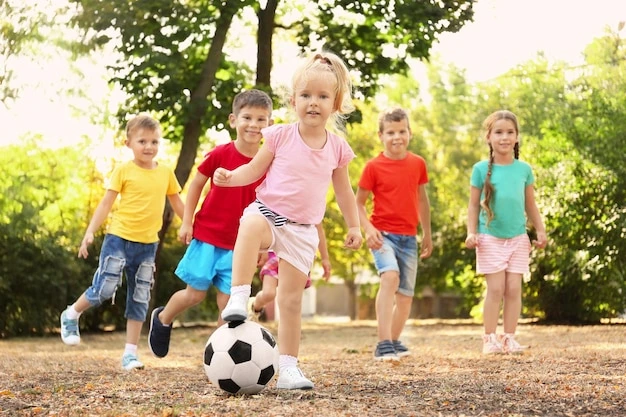Ayurvedic Parenting Tips: Nurturing Children with Holistic Health Practices

Ayurvedic Parenting Tips: Nurturing Children with Holistic Health Practices
Discussing Ayurvedic recommendations for raising healthy, balanced children.
Childhood, or Balyavastha, is an important stage of a person’s life. The role of Ayurveda in child care is precise and rewarding. It is a comprehensive technique that takes into consideration factors of physical, emotional, and psychological development that may have an influence on the child’s health to varying degrees. Ayurveda describes care according to different age groups including preconception care, gestational care, birthing care, infant care, todler care, aldoroscene care etc.
Role of Ayurveda in Child Care:
The present-day child represents the world’s future, with numerous responsibilities to play, including familial duty and self-sufficiency. The quality of life that a new-born leads reveals a great deal about the child’s existence till the end. Proper diet and lifestyle habits in childhood provide a solid basis for precise decision-making, an intelligence quotient, the capacity to fight illnesses, and so on.

Children’s care in Ayurveda is referred to as Kaumarbhritya or Bala Roga Chikitsa. One of the eight disciplines of ayurvedic study, Kaumarbhritya, is nothing more than pediatrics in Ayurvedic medicine.
Good nutritional care, healthy routine and care according to developing age is the basic triad for maintaing good health in a child.
Nutrition for Kids according to Ayurveda:
The alignment of children’s diets and lifestyle practices with the rhythms of nature has a significant impact on supporting the digestive fire in children.
Individual specific approach for diet and nutrition:
If we observe closely, we can identify different features related to body physics, skin, bone – muscle strength, hair type and metabolic patterns in kids with similar age. This unique blend of characteristics is due to Prakruti according to Ayurveda. Each of us is born with a distinct constitution, a particular combination of vata, pitta, and kapha—that is completely unique to each of us. This concept of prakruti is also applicable to children. Prakruti comes with certain strengths and weaknesses related to physical and mental health. That’s why some kids may get cold very often or some are vulnerable to constant stomach upsets. Ayurveda emphasizes on identifying these strengths and weaknesses and working on them. Ayurveda is a unique system of medicine in that it does not profess one-size-fits-all solutions, but rather honours and celebrates each individual. Diet and nutritional requirements for every kid are altogether different and they are very specific and play a crucial role in a kid’s growth and development.
According to Ayurveda, the balyavastha (Early childhood) is having predominant kapha dosha. In addition to Kapha predominance, kids will also have their own blend of Vata, Pitta, and Kapha doshas.
Ayurveda focuses on wholesome meals and not on supplements. Food should include different vegetables, milk, nuts and seeds, whole grains, lentils, beans and berries etc.
According to Ayurveda, digestion is the foundation of good health. Therefore, we want our children to have optimum digestive strength, allowing them to enjoy optimal health and well-being throughout their lives.
Healthy daily routine for kids:
Ayurveda for kids strongly emphasizes helping children establish healthy daily routines besides a healthy diet.
One of the key advantages of Ayurveda for children is that it is a preventative approach to health. The body needs to adapt itself according to the seasonal variation to remain healthy, fit & disease free.
Seasonal, environmental factors easily affect kids in terms of health. Multiple infections accompany us with seasonal changes. The chances of getting bacterial infections also increase with temperature changes that may trigger acute or chronic conditions in the kids.
A daily routine is crucial to our general health and wellness, and it may even be more vital for children. Routines give a child’s nervous system safety, consistency, and trust while enabling their physiology to form healthy habits. Here are some key points related to a healthy routine.

Rise early:
Children and adults alike can benefit from rising early. This should be easy because kids typically wake up early. Even though waking up at the same time every day is advised.
Eat healthy:
Children should be given fresh, nourishing food with the proper Ayurvedic nutrition. Encourage your kids to practice mindfulness when eating, and make sure screens or other activities don’t distract them when they do so.
Get moving:
Kids need extra encouragement to stay active and adopt healthy routines because they have abundant Kapha energy. Ensure your child engages in different activities.
Get enough sleep:
Make sure your child is put to bed on time after a hard day of learning and playing. The ideal bedtime for everyone, even teenagers, is 9 to 9.30 p.m
Ayurveda describes Rutucharya briefly including suitable food, lifestyle, exercises, and clothing according to the particular season which is very important to follow for kids. It also describes some complementary food inclusion to avoid health hazards related to particular seasons.
Complementing food with dry ginger, pepper, honey, cinnamon, turmeric etc. are simple and easy solutions provided by Ayurveda especially for kids for maintaining health harmony.
Agewise care for kids
Antenatal, postnatal and infant care:
Antenatal and postnatal care is a very crucial phase according to Ayurveda . Ayurveda, the ancient Indian system of medicine, offers comprehensive guidelines for antenatal care to promote the well-being of both the mother and the developing baby. Each month of pregnancy brings unique changes and challenges, and Ayurveda provides specific recommendations for diet, lifestyle, and herbal support.
In the first 18 months, infants learn through their senses and make great progress. Caregivers can help by interacting with them and stimulating them, but not overwhelming them. Ayurveda places great importance on postnatal care to support the physical and mental well-being of both the mother and the new-born during the delicate period following childbirth. This phase, known as “Sutika Paricharya” or “Sutika Ahara Vihara,” involves a range of practices and principles designed to facilitate recovery, promote healing, and establish a strong foundation for the baby’s health.

The initial stage of a child’s life is like planting a delicate seed in the fertile soil of existence. Ayurveda recognizes this fragility and advocates practices that ensure a strong foundation for the journey ahead.
Toddler care:

Toddlers develop language skills, learn to say “no”, and experience rapid physical and intellectual development. They also begin to learn emotional regulation.
With so many things currently happening around the world, raising a toddler (a child who is between 12 and 36 months of age) can be a tough task. At the very least, it is important to ensure that your toddler gets the best for his/her holistic and healthy growth.
Care for school going kids:
Ayurveda teaches children the importance of self-care from an early age. By learning about their unique constitution or “dosha” (Vata, Pitta, or Kapha), children gain insights into their physical and mental tendencies. This understanding empowers them to make informed choices regarding diet, lifestyle, and daily routines that support their innate balance and vitality.

Ayurveda for cultivating healthy eating habits:
One of the pillars of Ayurveda is nutrition. Children can benefit immensely from learning about the nourishing qualities of different foods and how to eat in accordance with their constitution. By incorporating Ayurvedic dietary principles such as eating fresh, seasonal foods and avoiding processed ingredients, children develop a healthy relationship with food that promotes digestion, immunity, and overall well-being.
Establishing a morning routine is crucial for school children as it sets the tone for their day, influencing their physical health, energy levels, and overall well-being. Ayurveda, the ancient Indian system of holistic health, emphasizes aligning daily activities with natural rhythms for optimal balance. A structured morning routine cultivates discipline and supports children’s digestion, immunity, and emotional stability.
Suvarnaprashanam is a holistic immunization method outlined in Ayurveda, offering a safe combination that supports the optimal growth and development of children. This medicinal regimen is administered on the day of Pushya Nakshatra each month to enhance its effectiveness.
Aldoroscence care:
The transition into late adolescence often brings about hormonal imbalances and menstrual irregularities. Ayurveda offers assistance in mitigating health issues and adjustments during adolescence through the use of adaptogenic and anti-stress herbs, along with Panchkarma therapies such as nasya and Shirodhara.
Adolescence is the age of major physical, intellectual, and emotional growth.
To support overall well-being, Ayurveda emphasizes the importance of a balanced lifestyle that includes proper nutrition, regular exercise, and adequate sleep. Ayurveda encourages mindful choices that align with the individual’s unique constitution, fostering a sense of self-awareness and empowerment.

Ayurveda believes that a person’s constitution is formed at conception, solidified at birth, and remains stable throughout a lifetime. It offers a unique blueprint for good health and symbolizes each person’s natural state of harmony. Our constitutions affect our physiology and physical characteristics, as well as our likes and dislikes, habits, and mental and emotional makeup. Children will typically benefit from the support and mentoring we can offer to help them manage their moods and sensitivities, even though they may have an excellent baseline of physical health.
In the grand tapestry of life, childhood is undoubtedly one of the most vibrant and formative chapters. As parents, we weave dreams for our little ones, nurturing their growth with love and care. In this intricate dance of parenthood, Ayurveda child care emerges as a time-honoured partner, offering a holistic approach to child care that spans centuries.
The journey of being a parent is dynamic, full of varied and shifting aspects, much like the patterns in a kaleidoscope. In such time Ayurveda emerges as a timeless parent guide for holistic child care, offering a holistic approach to child care at every stage of development.

Author: Dr. Gayatri Kulkarni – Mulye
MD ( Ayurved)
Special proficiency in Gynecological disorders and Infertility.
Practicing since 12 years at Orthoved hospital, Dombivli,

